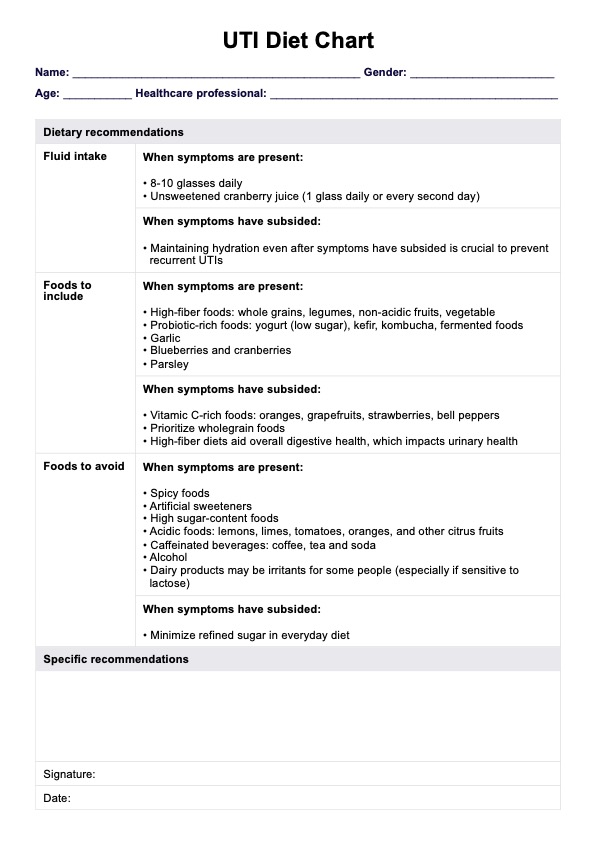Drinking alcohol does not directly cause UTIs, but it can exacerbate the condition. Alcohol acts as a bladder irritant and can impair the immune system, potentially making the body more susceptible to infections, including UTIs. Staying hydrated and avoiding spicy, sugary and acidic food can also result in less irritation and ease symptoms.

UTI Diet Chart
Access the UTI Diet Chart, featuring effective nutritional strategies for managing bladder infections.
Use Template
UTI Diet Chart Template
Commonly asked questions
The best meals for a UTI include foods rich in antioxidants and fiber, such as fruits, vegetables, whole grains, and lean proteins. Meals incorporating cranberries, blueberries, and fermented foods like yogurt are particularly beneficial.
When you have a UTI, avoiding foods and drinks that can irritate the bladder or promote more bacteria is best. This includes caffeine, alcohol, spicy foods, artificial sweeteners, acidic fruits like tomatoes and other acidic foods.
EHR and practice management software
Get started for free
*No credit card required
Free
$0/usd
Unlimited clients
Telehealth
1GB of storage
Client portal text
Automated billing and online payments











